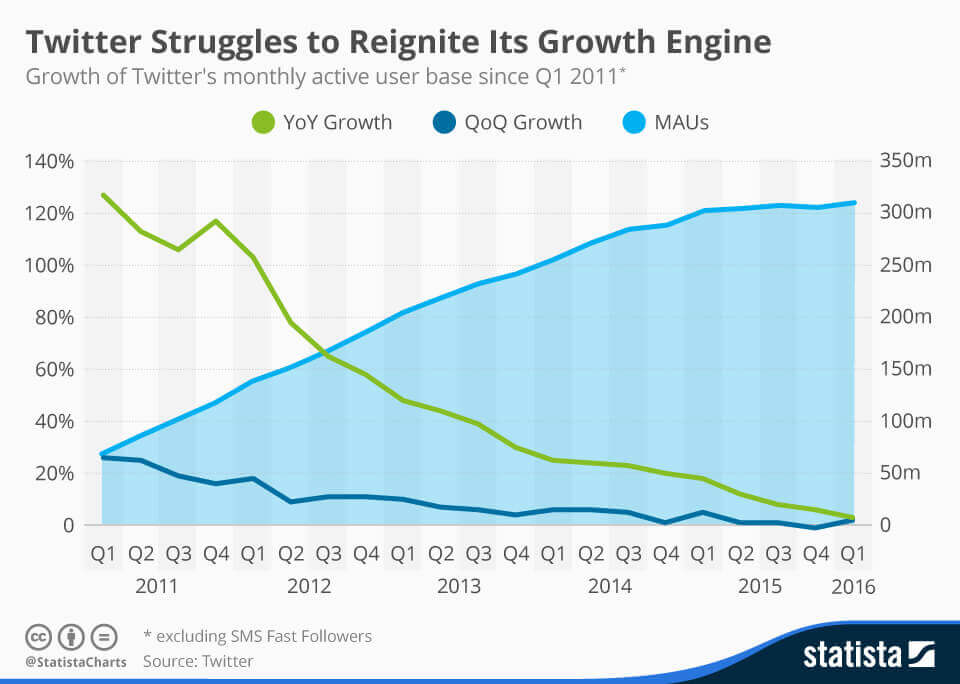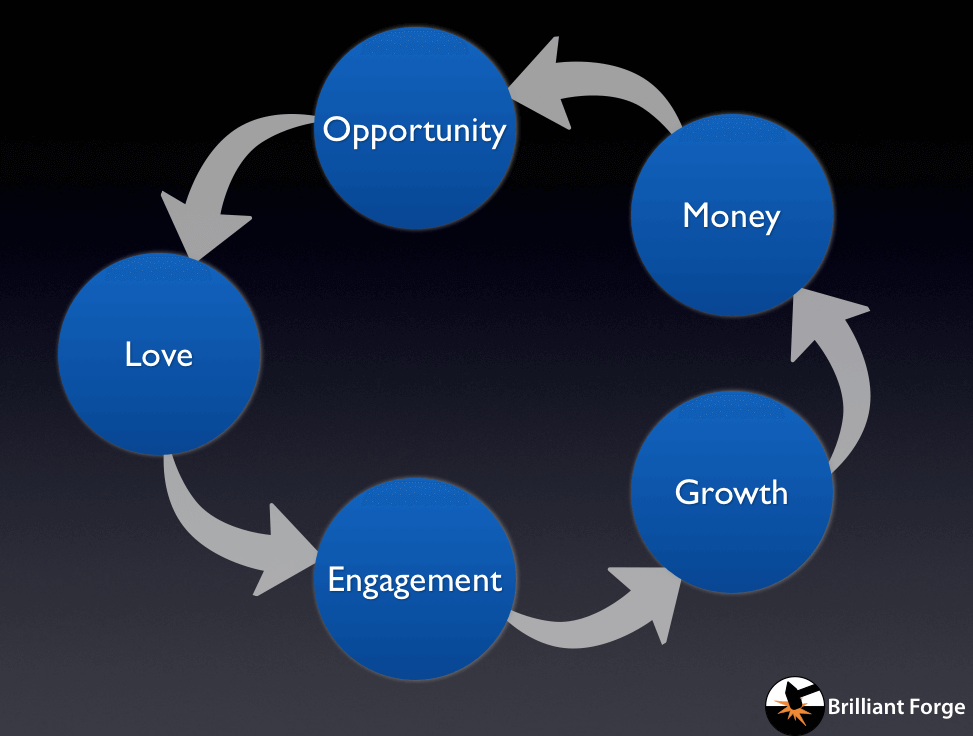Innovation
Twitter Continues to Struggle with Growth and Engagement
We need Twitter I know. It sometimes feels like kicking someone when they are already down. But, we can’t stop talking about the troubles with Twitter. It’s because so many of us really like Twitter and want them to figure this all out. As much as Facebook continues to be an unstoppable juggernaut, it isn’t…
Read MoreLarry Cornett’s Patents
Well, that was kind of fun. Happened to notice the “Patents” section on my Linkedin profile and decided to look up my old patents. I definitely worked on some geekier products back then. Method of operating a graphical user interface to selectively enable and disable a datapath in a network United States 6,636,239 Issued October 21,…
Read MoreDesigning for Love and Money – Fluxible 2013
In this talk, Larry explores the battle between love and money as it applies to products, organizations, and even our own careers. Over the past 20 years, Larry has developed strategies to deal with this problem, both as an individual contributor and as an organizational leader. Regardless of where you happen to work, or in what context, it’s an unavoidable issue that every designer must face and resolve.
Read MoreDesigning for Love and Money
From a Design Talk at Airbnb on Nov 14, 2012. Larry Cornett explored the natural tension that exists between design and money as it applies to products, organizations, and even your own career. https://youtube.com/watch?v=2W4nj1e9Ke0
Read MoreRecap of Panel: Learn How to Sustainably Innovate or Be Left Behind
I moderated a great panel discussion on Sustainable Innovation yesterday on Focus. It was quite enlightening to hear insights from people who’ve been at larger companies like Facebook, Linkedin, eBay, and Yahoo; but have also been at smaller startups too. I raised the concept of “Compound Innovation” and wrote up some of my thoughts on…
Read MoreWhy Do Businesses Fail to Successfully Adapt to Change?
Interesting infographic on GigaOM on why businesses are failing to successfully deal with disruption, competition, and change. Many of the reported causal factors will be quite familiar to anyone who has worked in a larger corporation. Although this highlights some of those factors, there isn’t much offered in terms of potential solutions to overcome these issues. Some…
Read MoreLearn How to Sustainably Innovate or Be Left Behind – A Free Event on Sep 28th
I will be moderating a panel on Sustainable Innovation on Sep 28th, 1–2 PM PST on Focus.com. It’s free, so check it out and join us! Summary We are all witnessing an increasing velocity of product and service innovation within the competitive landscape. Creating a sustainable process for successful innovation is now even more critical…
Read MoreOptimizing Organizational Models to Foster Disruptive Innovation & Product Evolution
I feel a much longer post coming on about the topic of “optimizing organizational models”, but I wanted to share a few quick thoughts on the link between organizational models and innovation. Given the recent events at Yahoo, there has been much discussion about why the company continues to struggle and what can be done…
Read MoreWhy Do Startups Fail? An Analysis of 3,200 High-growth Startups
I read a very interesting article on TechCrunch today about why startups fail. They shared data from research that Blackbox conducted for their Startup Genome project, which is trying to uncover what makes Silicon Valley startups succeed vs. fail. You can gain access to the free full report here. I highly recommend that you take the time to read through it. Pretty fascinating data.
My biggest takeaway from all of this? Startups absolutely need great mentors. Surprisingly, hands-on help from their investors did not have a significantly positive effect on their performance. I believe that most startup founders assume that they are going to get the guidance they need to be successful once they have secured the backing of a solid VC firm. This certainly does not appear to be the case. As I look through the key findings from the report, these points of failure seem to quite avoidable if a startup had a strong, smart team of mentors that they could turn to for advice on these issues. In particular, the most common reason for startup failure was “premature scaling” along one or more key dimensions (i.e., Customer, Product, Team, Financials, and Business model). Knowing how and when to scale a startup appropriately along these dimensions is something that an experienced mentor understands (e.g., someone who has learned from his or her own scaling successes and failures).
15 Key findings from their report
Read More
- Founders that learn are more successful. Startups that have helpful mentors, track performance metrics effectively, and learn from startup thought leaders raise 7x more money and have 3.5x better user growth.
- Startups that pivot once or twice raise 2.5x more money, have 3.6x better user growth, and are 52% less likely to scale prematurely than startups that pivot more than 2 times or not at all. A pivot is when a startup decides to change a major part of its business.
- Premature scaling is the most common reason for startups to perform worse. They tend to lose the battle early on by getting ahead of themselves. Startups can prematurely scale their team, their customer acquisition strategies or over build the product.
Developing Your Creativity and Innovation
I answered an interesting question on Quora today about creativity and innovative thinking. I’ve encountered this question in its many forms several times over in my lifetime. I remember one of the earliest being when I was in high school. The principal and a few teachers formed a very small research committee that included 5…
Read More


